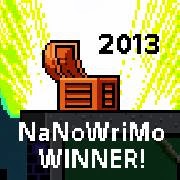
by Jason Joyner | Dec 11, 2013 | Blog, NaNoWriMo, writing, writing craft, Writing Wednesday
 |
| Lookit what I won. |
In 2011 I wrote a post entitled, “Why I Don’t Do NaNo.”
NaNoWriMo, to the uninitiated, is the National Novel Writing Month. Each November writers are encouraged to plant the butt firmly in chair and crank out a 50,000 word novel. It’s been going on for several years now, and it always brings out a lot of excitement in writer circles.
In 2011 I talked about how it didn’t work for me when I tried it a couple of times. It was good for some people, but didn’t work for everyone, and I was one of those writers.
Fast forward to 2013.
Facebook was buzzing with my writer friends saying how they were going to disappear for the month because of NaNo. The excitement was palpable. Just because I said I wasn’t going to do it, I felt a pang of missing out.
Man, they were going to have all this fun.
Then on October 30, I thought, why not? I can try it again. If I get a few thousand words out, it’s more than I would have had if I weren’t writing. My main project was under going another round of revisions, so it was out of consideration.
But there was this new idea I’d been composting for a while. I even got to do some brainstorming on it with Jill Williamson on our flight back from the ACFW writer’s conference in September. Would the new idea hold water? NaNo seemed like an opportunity to play with it and see what could happen.
I jumped in.
For the first week, I kept up pace. A writer has to average 1667 words a day to finish the 50,000 on time. Then life started interfering and I fell off. Well, at least I had some words down.
Except I had a taste of success. Circumstances worked out. I kept plugging away.
By November 28 I had three days left and 10,000 words to go. Could I do it? Facebook friends were now cheering me on. My wife succumbed agreed to let me have time over the holiday weekend to hit the keys.
And on November 30 I clocked in at 50,077 words.
So, this is partially a self-indulgent, congratulatory post. Whoo-hoo, I did it!
But I also learned some things about writing.
I learned how to push for a deadline. My first novel was written over seven years. No sense of urgency there. Now I knew I could be dedicated and churn out some significant production if challenged.
I was able to explore a new idea. Obviously the first draft of everything is mostly crap, but it forced me to work through some plot points, and there are a few keepers in there. Of course, the chapter where I was stuck and decided to interview one of my characters for “word count” won’t make the final cut. But I learned things about Demarcus that I can use later on. It’s all good!
Having a minimal outline helps. I was drowning for a bit until I brainstormed a few plot points to get me out of a bunch of conversations over food. Even when one of the points was, “something bad happens now,” it helped me have enough structure to push forward.
I went from doing 1000 words on my best day to 5200 words. Again, they came fast and furious, and I hope they at least make complete sentences, but I got them out. Now the revision scalpel can come out.
So to me in 2011 – you were wrong. You can do NaNo, and with the right circumstances it does help you out. But enough of the blog post – you’ve got revision to do. Get cracking!
—
Have you done NaNo? What was your experience? Please share in the comments below.
—
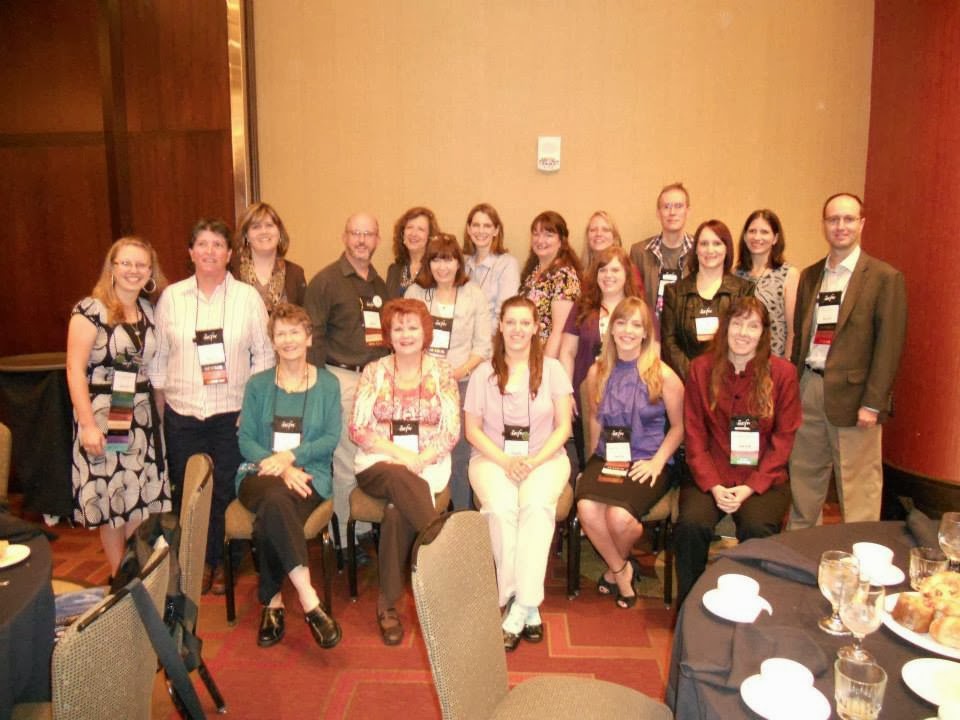
by Jason Joyner | Sep 26, 2013 | ACFW, Blog, conference, writing craft, Writing Wednesday
That was fast.
The 2013 ACFW Conference in Indianapolis has come and gone like a blur. It seems only a few days ago I was talking about the 2012 conference in Dallas. Sheesh.
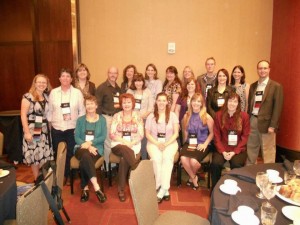 |
| The Northwest writers. |
You might wonder what happens when 580+ writer types gather in one place like that. Being a guy who likes speculative fiction, I could say that it tears into the space/time continuum, but that might be a little exaggeration.
If you are serious about writing, going to a conference is a great thing to do. You are around other creative types that understand the process, the joys and battles of it all. There are great opportunities to learn the craft and meet people to encourage and help you along the way.
For those who have gone to ACFW and couldn’t make it this year, you were missed. The conference filled up due to a lower capacity at this hotel. It was nicer than Dallas in that we were downtown, so it was possible to get out and about.
I’m proud to belong to a group like ACFW because of the fellowship in Christ we also share. It isn’t every conference where you find a couple of writers huddled in a corner discussing plots or future plans and then bowing heads to pray about the things shared. That is a special part of ACFW that is a real benefit to Christian writers.
I have some friends that want more details. Here’s a running list, and feel free to contact me if you have questions about anything here.
*I didn’t know much about Robin Jones Gunn, the keynote speaker, but she was a joy and such an encouragement. She spoke like a true storyteller and helped put things in perspective for all of us. I think she was exactly the person needed there.
*If you can go to a James Scott Bell lecture or workshop, do it. There’s a reason he is spoken of so highly in writer circles for the craft. He presents so well and lays out the tricks and tips he’s learned in such an entertaining and helpful way. I’ve read his book Plot & Structure, but this brought it home even more. The only downside is that it was a full-day workshop, so I had to miss out on some other interesting possibilities.
*I need therapy now thanks to Tosca Lee. She presented a class on making unsympathetic characters sympathetic. She had us write about betrayals, loss, fears. I thought I had dealt with those issues, but she dredged them all up. Actually, this was quite helpful in making my bad guy better.
*Storytelling games with speculative fiction writers beats all. Just sayin’.
*Leave it to Peter Leavell to get one hooked up with the cool crowd.
*The costume night was a big hit and a very smart, diplomatic move by the conference organizers. No one got kicked out this year! Good job Robin and company.
*Pitching to agents and editors was much easier the second time around. Though I still wish I would have brought chocolate as a bribe. Just in case.
*I would like to see some way to gather and encourage the men at ACFW. We are outnumbered by far and I think it would be a boost to have some fellowship in some way.
*There is still a lot of talk about traditional publishing vs. small press vs. self-publishing electronically. The issue is big and is still in a lot of flux. Check out Rachelle Gardner’s ebook for the same content she shared in a class there.
*There are a lot of creative people out there who love the Lord. I pray we all look to see how best we can serve Him and others with our gifts. Perhaps some of us should be broader in scope – finding ways to reach out to the general market or provide quality stories with heart that prepares the way for their readers to be more open to the spiritual.
*The elevators were a great place to meet and greet. Sometimes we got really close on the elevators. Seeing as there were only four and the stairs weren’t handy.
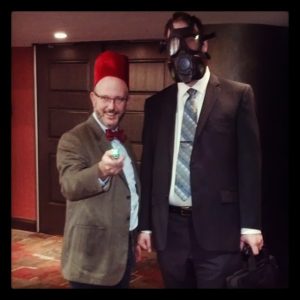 |
| “Are you my mummy?” |
It was a great time, and despite some last minute doubts, this conference turned out better than last year for me at least.
And yes, I’m wearing a fez. Fezzes are cool. (Bonus points for the reference there).

by Jason Joyner | Aug 28, 2013 | Blog, rules schmules, writing craft, writing rules, Writing Wednesday

As an aspiring writer, there are rules of fiction that I must live by. Show, don’t tell. Stick with one point of view a chapter. Don’t use passive voice. Kill all your adverbs.
All of these rules are very helpful for writers. They become rules because they do help books sound better. They help a writer.
However, there’s a backlash going on in the writing world. People are starting to ask question about the rules.
Jeff Gerke is a writing teacher, author, and publisher. On Facebook,
he started a discussion about the writing rules out there because he wants to write a book about the rules. In his book
Write Your Novel in a Month he argues that the only rule that can’t be broken is to be sure to engage the reader.
Finally, Rachelle Gardner, a respected agent with one of the top writing blogs, just talked about the rules being tools overall. They can help when a book isn’t working, but if it works to break a rule for the situation, then it’s okay.
This has helped me a lot. I know that I need to listen to advice from those who have experience. But I’ve also gotten conflicting advice. I got knocked off my groove for a couple of months after some bad feedback from a writing contest. Now I’m getting back into it and I’m realizing that I need to serve the story overall and use the rules as those tools, not as a bludgeoning hammer to force something into place.
I’m thankful for these people speaking up about the rules being more, well, guidelines to steal from a certain pirate captain. Hopefully my writing friends can be encouraged in the same way.
SO: any writing rules you’ve run across that have been used against your writing that really needed to be broken? Share them here and I’ll pass them on to Jeff Gerke for his book.
—
P.S. Did anyone notice the writing rule I broke in the first sentence?
—
P.S.S. Can you believe I’ve finally gotten a Writing Wednesday post out?
—
by Jason Joyner | May 1, 2013 | Blog, revision can be fun, writing craft, Writing Wednesday
Ah, the best laid plans.
I’ve been trying to do Monday and Wednesday posts on the blog. They haven’t worked out that well lately.
I’m looking at how to work that out. Today I wanted to give a little blurb about how my fiction project is progressing.
I am almost done with my second revision. I have to write a new chapter and revise two more and then I’ll have finished. My plan at this point is to find a freelance editor to go over it and help me refine it more. Hopefully there will be enough time to do a third revision before I go to the ACFW Conference in Indianapolis in September.
If you don’t see me around here, I’m working on writing. Like, right now. Write now? I’m getting a little confused…
—
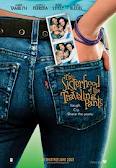
by Jason Joyner | Apr 10, 2013 | Blog, pants are preferable, plotting a way, potholes, writing craft, Writing Wednesday
Plugging away.
That’s how writing goes often. Keep chopping wood. Put more words on the page.
Writers know that there are two general methods for getting a story on paper. The plotters love to outline, charting each scene and building up a framework that their words can fill in. The pantsers, so named for writing by the seat of their pants, make it up as they go.
 |
| Not quite the idea… |
The plotters like knowing where they are going, having a map or blueprint to follow. The pantsers will tell you how their story can be more organic, being surprised by the twists and turns that pop up along the way.
How about a middle way?
Of course people do this all the time. You don’t have to be tried and true to one method to get to “The End.”
I was surprised when this started happening with me though.
I’ve always been an outline guy when writing papers. In college I would do my research, label it all out with Roman numerals and A. B. C., and when I was all done, write my final draft as my first draft. All done. Ready to go!
Yeah, it’s not that easy when writing a novel.
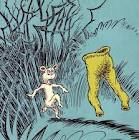 |
| Closer? I dunno… |
I have a general outline in my head. I know where my protagonists need to be…eventually. I have the ending all worked out. There was just a little problem with the middle, and getting them to where they needed to be. A small issue.
I kept dealing with writer’s block whenever I finished a point on my outline. Where to go next? How do I get there?
I’ve started doing it by the seat of my pants.
A technique that I’ve found effective for me is to set my phone’s timer, meaning I can’t browse the internet for some obscure fact that I HAVE to have for my next scene, and start writing. It might not be the best prose in the galaxy, but I have made progress.
It has been propelling me past these sticking points. I’m forced to make a decision and go with it.
And there’s been some good stuff come out of it. Who would’ve guessed?
I still have my general outline and I still know where I want to end up. But the process of getting there has become more interesting. Hopefully it all turns out when I get there!
So if you’re writing and wondering how best to do get moving – do whatever it takes. There’s no need to just plot or pants it. The point is words on the page.
Time to go set my timer…
—
by Jason Joyner | Mar 28, 2013 | a little late, arts, Blog, CBA, men do read, writing craft, Writing Wednesday
OK, I’m only one day late ;).
Sometimes the discussion going on other places is too good to pass up.
Mike Duran, as usual, has some great, thought-provoking posts this week. He posted at Novel Rocket about Christian fiction marketing toward men. That started some chatter, so he continued his thoughts on his own blog Decompose. He wonders if the CBA is doing a good enough job reaching men with Christian fiction, both male authors and the readers. Is it a responsibility of religious publishers to reach out to men more effectively? Those are the questions asked at the two posts, and as a male reader and writer, they are very interesting to me. Check them out if you can.
Another post was by Jeffrey Overstreet, author of the Auralia’s Colors series. He brings up the idea of artistry versus message in fiction. I’ve agreed and disagreed with Overstreet on various aspects of this debate in the past. He is eloquent in his post and the comments below are worth the time to read. My friend Becky Miller makes some good counter-points there.
Both are good fodder for some deep thinking.








